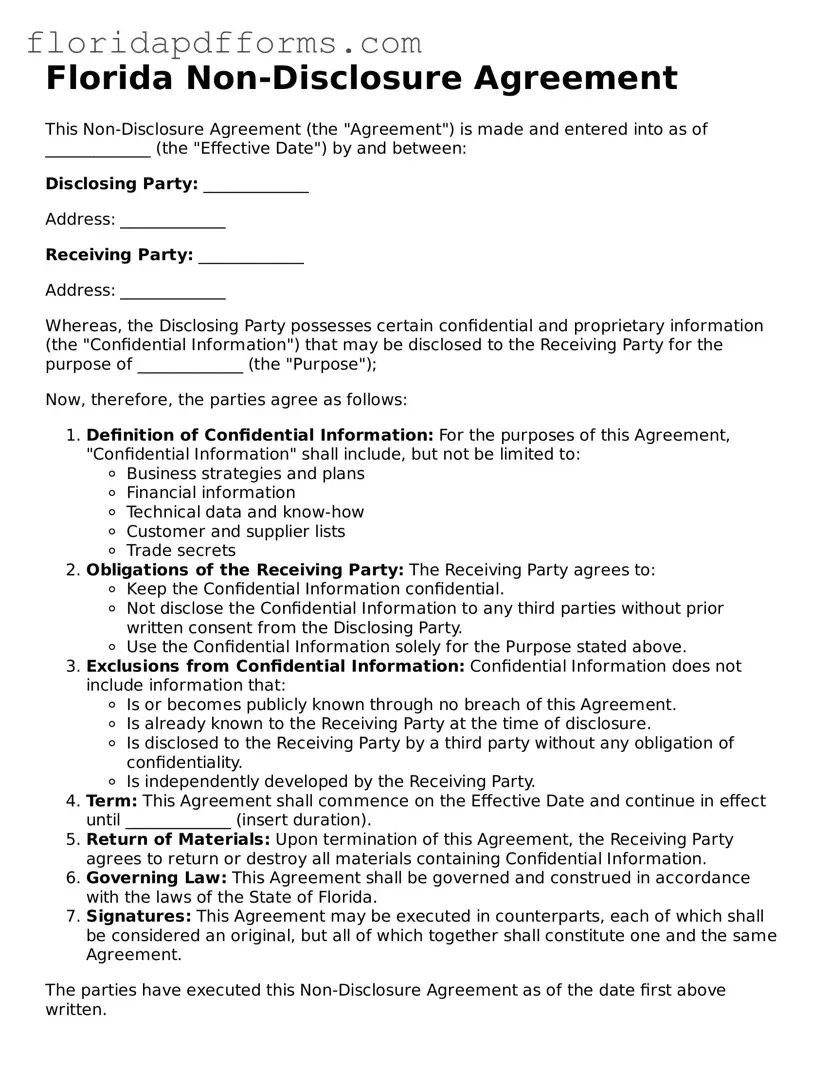Official Non-disclosure Agreement Template for Florida
A Florida Non-disclosure Agreement (NDA) is a legal contract designed to protect confidential information shared between parties. It establishes the terms under which sensitive information can be disclosed and ensures that it remains confidential. Understanding this form is essential for individuals and businesses looking to safeguard their proprietary information.
To take the next step in protecting your confidential information, fill out the form by clicking the button below.
Modify Non-disclosure Agreement Now

Official Non-disclosure Agreement Template for Florida
Modify Non-disclosure Agreement Now

Modify Non-disclosure Agreement Now
or
⇓ Non-disclosure Agreement File
Don’t stop halfway through your form
Finish your Non-disclosure Agreement online with quick edits and instant download.